Week in Tech: The IoT is here, now comes the format war
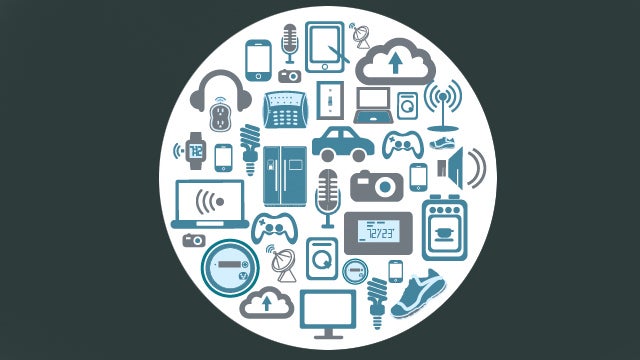
OPINION: Chris Smith weighs in on Google’s Internet of Things push and the need to avoid competing standards, why the smart car revolution is on the right track and how video on demand must do more to support offline access. Also, is Jony Ive really pondering life after Apple?
Google’s Weave and Brillo sound great, but an IoT format war does not
Things are now set in motion that cannot be undone. Even if we wanted to, there is no turning our backs on the Internet of Things. We could destroy all the work so far a la Terminator 2, but the Judgement Day of garbage cans talking to fridges while we’re out of the house will not be halted.
“Christ, when’s he going to chuck away that old Chinese take out? It’s starting to stink in here. I’ll have to give his lazy ass another nudge,” said the fridge.
“I’ll activate my odour reducer now,” the garbage can replied.
It’s happened relatively slowly, but the inevitable march towards the death of dumb gadgets is really starting to pick up pace in the last few weeks.
Google announced Project Brillo at I/O and Apple is expected to announce a market-ready HomeKit a little over a week from now. Samsung has Smart Things and its own processors, while Qualcomm also announced a range of chips to smarten-up anything that has a current running through it and plenty that doesn’t.
While the future is inevitable, there’s still plenty to do to ensure it’s actually as useful as possible. With so many firms fighting for a share of this exciting new sector and many more eying a piece of the pie, it feels like a format war is brewing.
SEE ALSO: What are Project Brillo and Google Weave?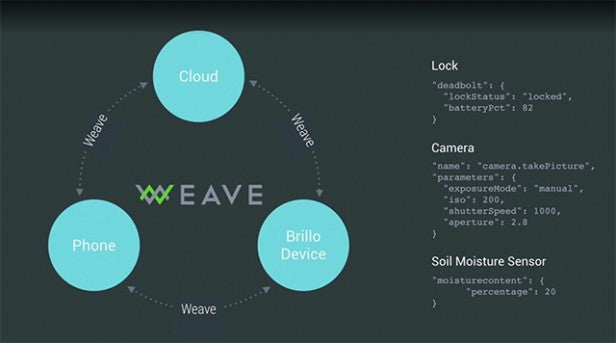
SEE ALSO: 9 Crazy smart home gadgets you didn’t know existed
OEMs will pick naturally pick sides, especially those with a stake in the sector. So, will my Samsung refrigerator talk to my Philips oven? Or will they be like the awkward college roommates who make life uncomfortable for everyone else by ignoring each other?
Will I be able to get a notification on my Android phone or my iPad when the beer in the fridge has reached the optimum coldness? Will my Android TV and Apple TV give me a holler when the leg of lamb is ready?
Or will we have to be in one camp or the other?
The most notable takeaway from Google’s Project Brillo and Weave announcements this week is the potential for easy interoperability.
Google clearly wants Weave to become the industry standard language these devices will use to intelligently communicate with each other and act upon the data each provides.
As it doesn’t have to run on Brillo, Google’s Weave could make life much easier for consumers, manufacturers (they can add it to existing devices) and developers. Google’s proposals look like they’d clear the way to clean up the IoTs current messy state.
The firm says Weave will be “easily available for iOS,” as well, so all that leaves is for Apple to get out of the way right and allow HomeKit to benefit from Weave rather than competing against it, right?
Shouldn’t be a problem right? I mean, since when has Apple stubbornly developed proprietary standards that have fenced people into its own ecosystems?
Wait a minute…
Car makers smart to avoid picking sides in Android Auto vs Apple CarPlay battle
While Apple and Google are gearing up for a battle in the smart home arena, it seems auto manufacturers are giving the smart car format war a wide berth. General Motors announced this week 14 new Chevy models will support both Android Auto and Apple’s Car Play. Thank heavens for that! The last thing you need to consider when buying a new car is whether it’s compatible with your smartphone OS of choice. By supporting both platforms and giving drivers the chance to choose simply by plugging in their device is a big boost to this sector.
SEE ALSO: Apple Car Play: 8 things you can do with Apple’s in-car system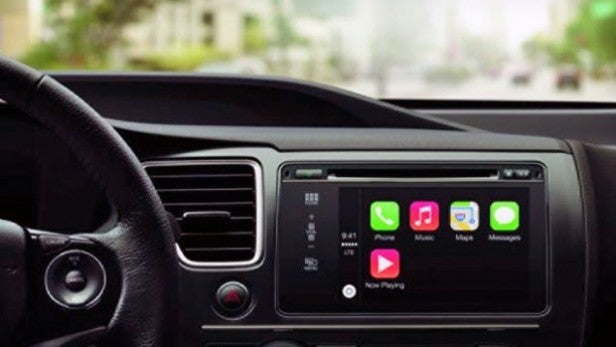
The missing link in the web TV ecosytem? Offline playback
I’m sure most of you are the same. Whenever I’m taking a long flight, I love stocking up my tablet with all manner of movies and TV shows to watch on the plane. However, too often I’m left with the unenviable choice of buying content I’ve already paid for (through Netflix, Cable TV and other on demand platforms) or obtaining it through questionable means. It seems to me there’s a missing link in this bold new web TV era and that’s the ability to enjoy what you’ve paid for when there is no web.
The BBC iPlayer does it, but hardly anyone else does. I really feel like I should be able to cache a few items from my Netflix queue to watch offline, even if there’s a very short expiry window of, say, 24 hours. I feel like there should be a way to store content from connected apps like HBO Go, Comedy Central, AMC and other apps from traditional TV networks.
In this era, if I’ve paid for something once then I expect to be able to watch it however I want whether there’s web access or not.
SEE ALSO: Cable-free Game of Thrones coming to Android with HBO Now app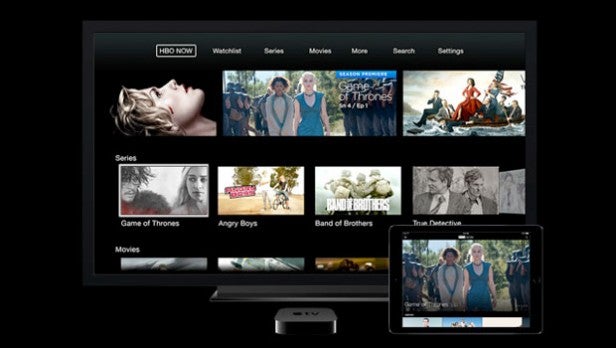
Apple and Jony Ive preparing to part ways? Don’t count on it.
Sir Jonathan Ive is the incarnation of modern Apple in the post-Steve Jobs era. His genial touch is on everything the company does. Mostly, that’s an exceptionally good thing, aside from those awkward promotional videos where he talks… very… slowly for about ten minutes.
This week analysts tried to suggest Ive’s promotion to Chief Design Officer and a scaling back of his managerial responsibility was the beginning of the end for Ive and Apple. The tech equivalent of “moving him upstairs,” to use a football metaphor.
The analysts cited the completion of his mission and questioned what’s left for him to achieve given Apple probably isn’t launching any more major product categories for the foreseeable future. The say he wants to travel more, to raise his kids in England.
SEE ALSO: WWDC 2015: What to expect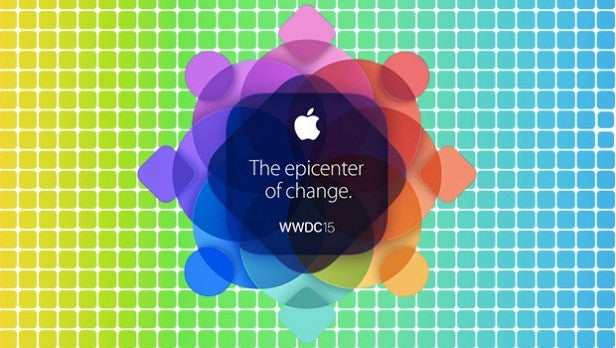
None of that means he’s on the way out though. Personally, I think he’ll always be there. He’s too big a part of Apple’s identity now. There’s no way he’d ever pop up working for someone else. He’s a one club man, to use another football analogy.
At this stage he’s earned the right to do whatever he wants. Apple is as much his company as it is Tim Cook’s or Phil Schillers or any of those guys. If this new role gives him the creative freedom to get back to what he loves, away from managing teams, I think it’s a good thing.
I don’t think there’s a chance in hell Ive leaves Apple in the next decade.


